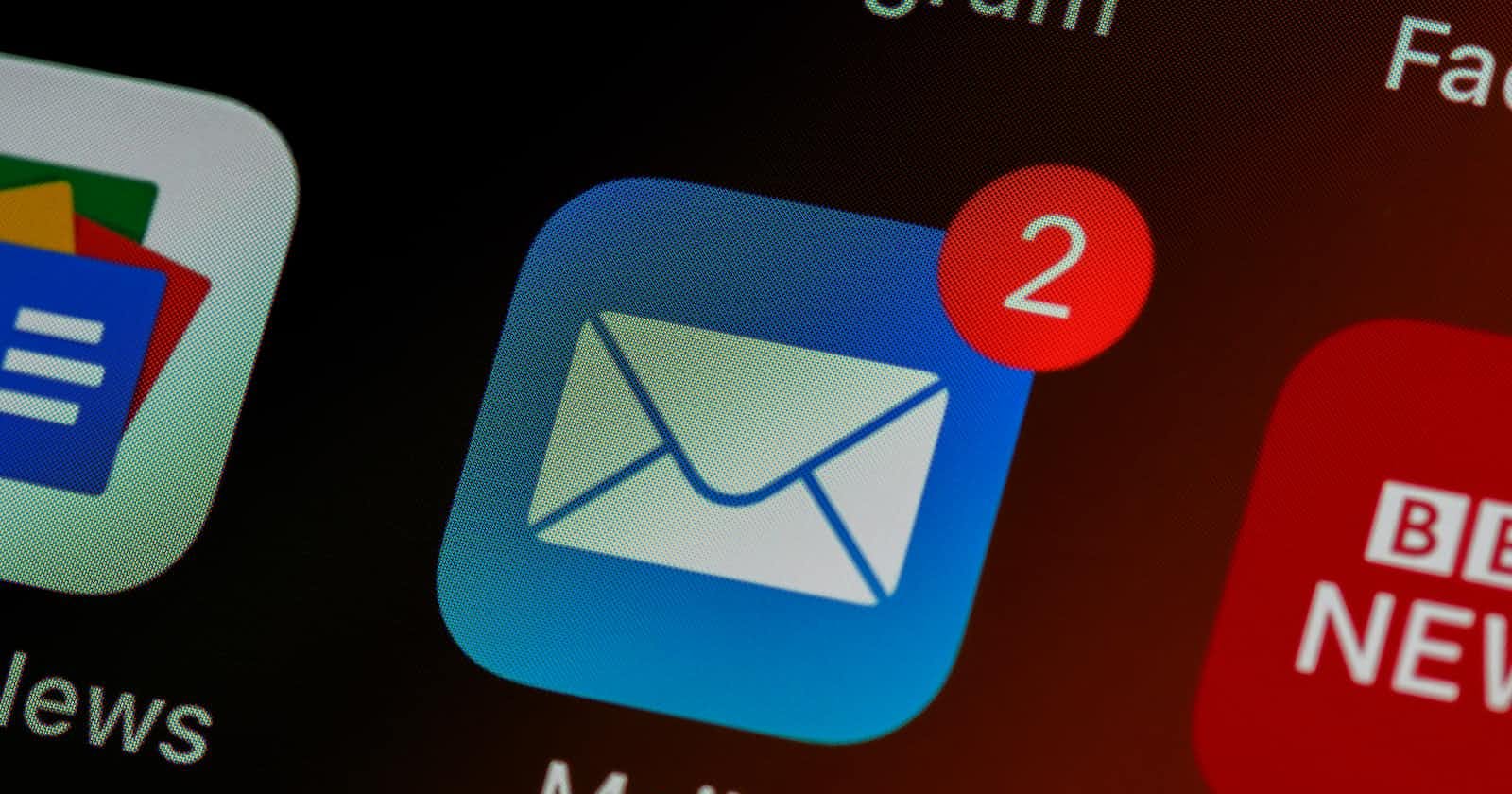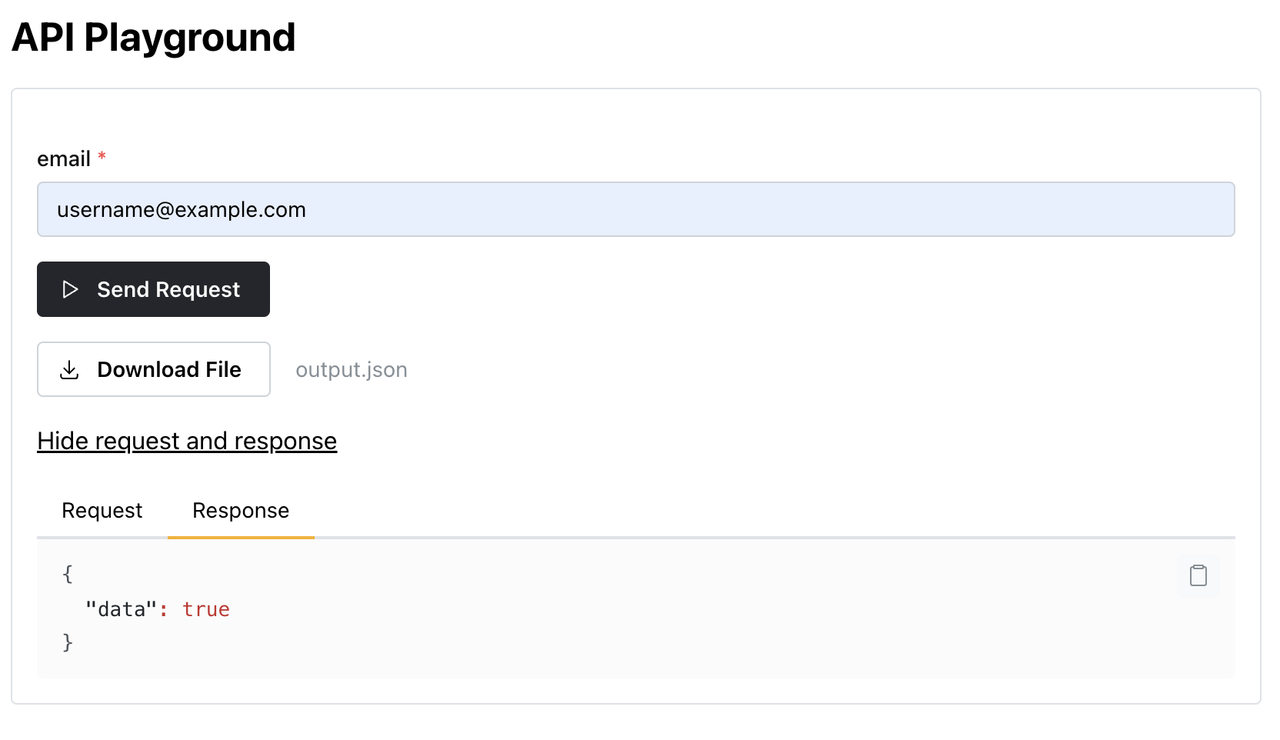Hey there, fellow devs! For those building customer facing applications, the importance of email validation cannot be overstated, especially for application developers who handle user registrations and communication. Verifying the DNS (Domain Name System) of email addresses before sending messages is a critical step in ensuring the validity and deliverability of those addresses.
First, let's talk about why checking email DNS (Domain Name System) during user registration is super important. Don't worry; we'll break it down to the most important bits:
Validating Email Address Format: Ever faced those wacky email addresses like "username@example"? Yeah, we need to avoid that mess. By validating DNS, we make sure the emails have a proper format with a username, "@" symbol, and a legit domain name.
Busting Bad Domains: Users can be clumsy, and they might type in non-existent domains or just plain wrong ones. By doing DNS checks, we can kick out email addresses from these shady domains and keep our platform clean.
Hasta la vista, Typos: Typos happen all the time! But validating DNS allows us to catch them before users complete their registration with a messed-up email address.
Bounce Buster: We all hate bounced emails. Not only do they waste resources but also hurt our email rep. DNS checks help reduce bounces and improve email delivery rates.
Disposable Email Dodger: Ugh, disposable emails are the worst! They can mess up our user communication big time. Validating DNS helps us spot these sneaky disposable email services and block them permanently.
Blacklist Blocker: Ain't nobody got time for spammy domains! By checking DNS, we can avoid sending emails to blacklisted addresses and dodge those spam filters.
Stay Connected: Communication is key! When we verify DNS, we ensure our important emails, like account verifications and updates, reach the right inboxes.
Best Practice Champions: Email service providers often recommend verifying DNS before sending emails to improve deliverability and avoid potential issues with spam filters.
While DNS checks are crucial, there's another thing that application developers should worry and care about: disposable email domains during user registration.
Checking for disposable emails when registering new users on any application is important for several reasons:
Spam Slayers: Disposable email addresses are spammers' and abuser’s favorite toy. By blocking them, we keep our platform spam-free. By blocking disposable email addresses, you can reduce the likelihood of spam and abuse on your platform.
Database Bliss: Less clutter, more speed! By filtering out disposable emails, you can ensure that your user database is more relevant and easier to manage.
Engage the Real Deal: Let's focus on the real users who sincerely love the application. Filtering out disposable emails helps us engage with the right crowd.
Keep it Real and Secure: Permanent email addresses add an extra layer of security. No room for those throwaway accounts here!
Terms of Service Heroes: Some services and APIs may have specific terms of service that prohibit the use of disposable email addresses. By blocking disposable emails, you ensure compliance with third-party requirements and avoid potential issues with service providers.
Bounce Prevention: Emails to disposable addresses bounce like crazy. By filtering out disposable email addresses, you reduce the chances of undelivered messages and improve your email deliverability rate.
To make our lives easier, there are plenty of third-party APIs and libraries to handle these checks seamlessly.
ApyHub’s email validation API can be found here. Using this service you can protect your sender reputation and if you’re using AWS SES and other such services, it improves the overall user experience by providing users with quick feedback to correct any unintentional typos. This can help improve the accuracy of communication, reduce bounces and improve email deliverability, and data quality. This leads to better communication with customers, improved email marketing results, and better business outcomes.
You can also simply try out the utility in our API playground section like this:
So, let's level up our email game, keep things secure, and impress all users with a smooth registration process.
Happy coding! 🚀
P.S: Ready to use the ApyHub email validation API? Here’s a detailed tutorial on Advanced Email Validation using the API in Go.


